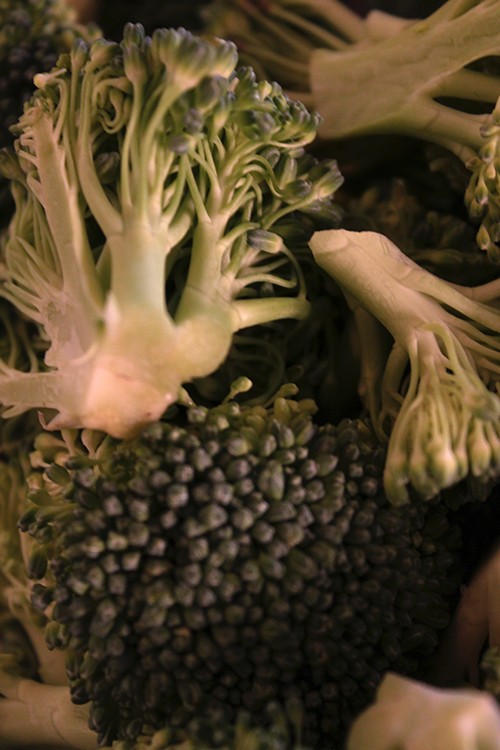Women who combine a vegetable-rich diet with a medical regime could have a lower recurrence rate for breast cancer.
The Arizona Cancer Center received a $3 million grant from the National Institutes of Health to study a compound naturally found in broccoli to determine whether it enhances the benefits of the breast cancer drug, tamoxifen.
The purpose of the study, called the Diindolylmethane Efficacy (DIME) study, is to see how the compound in broccoli interacts with tamoxifen, said Cynthia Thomson, an associate professor in the Department of Nutritional Sciences at the UA. Tamoxifen is the first drug widely used to affect exposure to hormones such as estrogen. More than 70 percent of all breast cancers are stimulated in an estrogen-rich environment, Thomson said.
Tamoxifen is a medication that was developed in order to reduce estrogen exposure, she said.
With the grant the center will launch a new study based off research from a previous study where women went on a diet high on cruciferous vegetables, such as broccoli, while taking tamoxifen. The women were observed to have a lower recurrence rate, which meant that breast cancer was less likely to return after being treated. Women on the high vegetable diet had a recurrence rate that was approximately 40 percent lower than women who ate lower amounts of vegetables, she said.
“”Tamoxifen affects the breast as well as some other tissues in the body, but it’s what we call a selective estrogen receptor modulator,”” she said. “”In other words, it doesn’t affect all the estrogen receptors throughout the body, it just targets certain ones, but most importantly it targets breast estrogen levels.””
Thomson has set a goal to recruit 170 participants who are currently taking tamoxifen.
“”We knew that if we really wanted to make a recommendation that women should consume this compound, that we needed to test it in a randomized trial,”” Thomson said.
Participants of the blind study will be required to take either a placebo or the dietary supplement diindolylmethane, also known as DIM, Thomson said. They will take the supplements twice a day for 18 months, said Julie West, a research specialist in the Department of Nutritional Sciences at the UA.
“”The whole purpose is just testing whether or not it can enhance the effect of the tamoxifen,”” West said.
DIM is a compound found in cruciferous vegetables such as broccoli, Thomson said. The methane compound, which is found in broccoli, cauliflower, kale and brussel sprouts, is what makes them gas-forming vegetables.
“”This is one of those vegetables, and it has shown to have cancer-preventive activity,”” she said.
In addition to taking a pill, the participants will also have breast imaging done at the beginning, middle and ending stages of the study, Thomson said. They will also have their blood drawn at four different times.
The study procedures will look at how much tamoxifen is circulating in the blood. Breast density will also be observed, as it is a risk factor for breast cancer.
The study will also examine how someone’s risk for breast cancer has changed.””If I can reduce your breast density, then that should reduce your risk for breast cancer,”” Thomson said. “”If I can improve to reduce your hormone levels, then that should reduce your risk of breast cancer.””
In addition, if there is a favorable change in tamoxifen metabolites in someone’s urine, breast cancer risk can also be lessened. These are intermediate indicators of reduced risk which allow for shorter studies, less people and generally the same results, she said.
“”The study is testing to see if indeed we are able to see a measure of beneficial effect in change in characteristics of breast tissue,”” West said.
If you or someone you know has breast cancer and is taking tamoxifen, call 520-321-7748 to participate in the DIME study.









